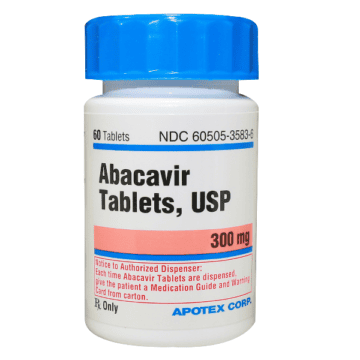This is an automatically translated article.
Vizicin is an antibiotic used to treat mild to moderate infections caused by bacteria sensitive to azithromycin. To ensure effective use and avoid unwanted side effects, patients need to strictly follow the instructions of the doctor, professional pharmacist.1. What are the effects of Vizicin 125?
What is Vizicin? Vizicin is a macrolide antibiotic containing the active ingredient azithromycin. Vizicin is indicated in the treatment of mild to moderate infections caused by bacteria sensitive to azithromycin, for example in the following conditions:
Tonsillitis Pharyngitis Community acquired pneumonia Inflammation Acute bacterial sinusitis Acute bacterial exacerbation of chronic bronchitis Acute bacterial otitis media Uncomplicated skin and soft tissue infections Cervicitis Urethritis Genital ulcer disease in men In addition, some other effects of the drug that are not listed on the approved drug label, but in some cases, the doctor may prescribe the use of Vizicin. Therefore, before taking the medicine, consult your doctor.
2. How to use Vizicin
After you understand what Vizicin 125 is, you need to learn about how to use it effectively. Vizicin 125 is prepared in the form of powder for oral suspension, including azithromycin 125mg/pack of 1.5grams. Dosage will be based on the patient's medical condition and age, usually for adults and children over 12 years old as follows:
For mild community-acquired pneumonia, skin and tissue infections Uncomplicated soft and respiratory infections, the single dose is 500mg on day 1, followed by 250mg/day from day 2 to 5. For bacterial exacerbations of chronic bronchitis and inflammation If you have a sinus infection, take the drug within 3 days, 500mg per day. For sexually transmitted infections, a single dose of 1 gram is used. For patients with mild and moderate renal impairment with creatinine clearance between 10-80ml/min, no dose adjustment is required. Dissolve the powder mixture with a little warm water to form an oral solution, the patient can drink 1 hour before meals or drink at least 12 hours after meals. If the drug mixture has been mixed, it should be used within a day and not more than 12 hours.
To use the drug safely, take Vizicin exactly as directed by your doctor, do not use more than the recommended dose, smaller or longer than prescribed. Use Vizicin regularly to get the most benefit from it and you can stop taking it if any new signs of abnormality appear or the condition does not improve. Patients absolutely do not abuse the drug for too long for a long time. This does not make the patient's condition better, but also increases the risk of unwanted effects.
3. Undesirable effects when using Vizicin
Vizicin can cause some unexpected and common side effects that can be listed as:
Diarrhea Nausea and vomiting Abdominal pain Stomach pain Headache Some reactions are more serious but rare. and abnormal liver tests such as:
Difficulty breathing Swelling in the face or throat Fever, sore throat Burns in the eyes Tinnitus or temporary hearing loss Skin redness, blistering or peeling Spreading rash Bruising abnormal purple anorexia Fatigue Dark urine, yellowing of the skin or eyes Severe abdominal pain, bloody diarrhea Chest pain, palpitations, rapid heartbeat Sudden dizziness or fainting Before prescribing medicine, doctors always consider the benefits and effectiveness that Vizicin brings. However, when using Vizicin can still occur unwanted effects. Therefore, when there are unusual symptoms, especially when a severe allergic reaction occurs with accompanying signs such as severe dizziness, difficulty breathing, rash, ... the patient needs to be informed. Immediately notify the doctor or nurse for immediate medical intervention.
4. Some notes when using Vizicin
Some notes when using Vizicin include:
Report a history of allergy to Vizicin, macrolide antibiotics such as azithromycin or erythromycin, ... hypersensitivity reactions to any other allergies. Vizicin may contain ingredients that don't work and could cause an allergic reaction or other serious problems. Report any medications you are taking including prescription and nonprescription drugs, herbs and supplements, foods, dyes or preservatives. Vizicin is contraindicated in patients with a history of cholestatic jaundice or liver dysfunction related to previous azithromycin use. Vizicin should be used with caution in patients with myasthenia gravis, severe liver or kidney disease, cardiac arrhythmias, low blood potassium levels, congenital QT prolongation syndrome, diabetes mellitus, diarrhea caused by the use of antibiotics. previous birth, neurological or psychiatric disorder. Vizicin should not be used in patients with rare hereditary problems of fructose intolerance, glucose-galactose malabsorption or sucrase-isomaltase insufficiency. Avoid direct sun exposure or use sunscreen with SPF 30 or higher and protective clothing when you are outdoors during treatment with Vizicin 125mg, because it can cause can catch the sun more easily. For pregnant and lactating women, there are not enough data to confirm that Vizicin 125mg has an effect on the fetus and nursing infant. Therefore, Vizicin is generally not recommended for use during pregnancy and lactation. However, in some cases, your doctor will weigh the benefits against the possible risks. If you forget to take a dose of Vizicin, take it again as soon as possible. However, if it is close to the time of your next dose, skip the missed dose and continue taking or injecting the medicine as scheduled. Do not use more drug than the treatment regimen. Vizicin overdose or ingestion can cause serious symptoms such as nausea, vomiting, abdominal pain, shortness of breath, fainting,...
5. Drug interactions
Drug interactions can reduce the effect of Vizicin, or increase the effect of unwanted effects. Tell your doctor about all other medicines you are taking including over-the-counter medicines, vitamins, prescription drugs, and herbal products. Do not start, stop or change the dose of any medicine without your doctor's consent.
Some drugs that can interact with Vizicin include:
Antacids Theophylline Digoxin Warfarin Triazolam Ergotamine and Cyclosporin derivatives Nelfinavir Rifabutin Atorvastatin Drugs that prolong QT such as procainamide, dofetilide, quinidine, amiodarone, cisapride , sotalol, terfenadine, pimozide, citalopram, levofloxacin, moxifloxacin.
6. How to store Vizicin
Store Vizicin in powder form at room temperature below 30 degrees Celsius, protect from light and avoid humid places. Do not store Vizicin in a humid place or in the freezer and keep away from heat and open flames. Different medicines will have different storage methods, so read the Vizicin storage instructions carefully on the packaging, or ask your pharmacist. Keep Vizicin out of the reach of children and family pets. When the medicine has expired or is damaged and cannot be used anymore, dispose of it and dispose of it properly. Do not arbitrarily dispose of Vizicin into the environment such as water pipes or toilets unless requested. Please consult your waste disposal company or pharmacist on how to safely dispose of Vizicin to help protect the environment.
In summary, Vizicin is an antibiotic that is effective in the treatment of mild to moderate infections caused by bacteria sensitive to azithromycin, such as community-acquired pneumonia, tonsillitis, pharyngitis, acute sinusitis, acute otitis media,. ... However, Vizicin can cause some unwanted effects and drug interactions, so tell your doctor what medicines you are taking to reduce the risk of unwanted effects and co-administration. while increasing the effectiveness of the treatment.
Follow Vinmec International General Hospital website to get more health, nutrition and beauty information to protect the health of yourself and your loved ones in your family.
Please dial HOTLINE for more information or register for an appointment HERE. Download MyVinmec app to make appointments faster and to manage your bookings easily.













